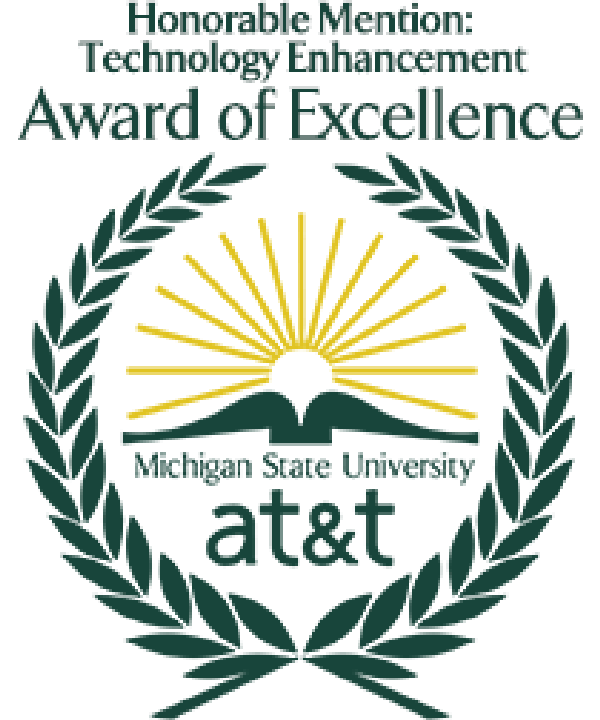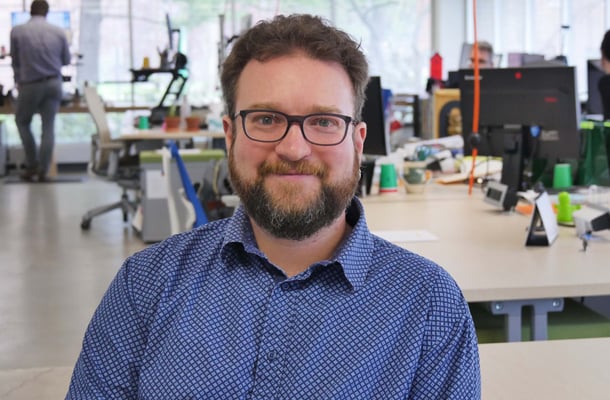This is a course about creation. Every day innovators are faced with problems, some of them are broad in scope and complicated (i.e. “How do we reduce our dependence on oil?), and some are narrow and easily solved (i.e. “What color shirt should I wear with these pants?”). It is human nature to solve problems, and by addressing problems in new and innovative ways people create economic, social and cultural value. The problem with ideas is that ideas don’t create value, only action creates value. To create value, businesses must demonstrate what a product or service offers a potential customer. This course teaches digital creation methods to students from a wide range of disciplines.
Instead of a creating value as a thought experiment, in this course students build digital prototypes of solutions. As individuals and in small teams they explore three areas, 3D product modeling, 360-degree sales content visualization, and designing basic mobile app mockups. As a one credit survey course, it is about learning how to explore and develop basic technical skills quickly. This project-based course is graded on process over final product. Students are not expected to become instant experts, but rather learn through the process of confusion, trial and error, and eventual success. Through this process they develop the creative confidence needed to quickly learn new technical skills and express their creative problem solving.
In this class, student-entrepreneurs from across majors and disciplines practice learning and implementing new technologies in service of their business concepts. The technologies used help the students to represent use cases but in the context of real-world business models and applications. The technologies (3D printing, immersive visualization, and designing mobile applications) help students transform their ideas into something tangible. Each student learns these three different processes, and immediately employs them to make their business idea concrete. This step is essential for entrepreneurs in both being able to learn more about their idea through the process of creation and in giving something that potential customers can respond to. Yet the step of creation is easy to avoid in a classroom entrepreneurship experience. By focusing on not the creation of the idea but the creation of value using technological tools, the students are able to develop a mindset that is ready to learn new tools and processes through embracing ambiguity.
Through embracing ambiguity students can take a step towards developing a growth mindset. A mindset where they view learning as a process which requires effort and reflection instead of thinking of themselves as inherently good at, or bad at, learning technological tools. For students coming from non-technical majors learning even the basics of creation using technology can be transformative in their relation to modern technological practices. This class uses technologies that focus on the relationship between the physical classroom experience and the student-entrepreneurs’ ideas. 3D Printing allowed the students to create a digital design from their sketches or mental ideas, print that digital design into physical form, and then use that physical object to test how well it met their own intentions before bringing it to potential customers. The creation of a mobile app mockup encouraged them to explore the value of location-based technology. Lastly, the immersive visualization encouraged students to use the technology to put their users in the place of the problem, and to explore possible solutions. All three technologies used completely different software for creation and ad differing types of constraints on what was possible.
Technology Used
- Digital Scholarship Lab, MSU Library (https://lib.msu.edu/dslab/)
- Hollander Make Central, MSU Library (http://make.msu.edu/makerspaces/hollander-makecentral-makerspace/)
- Start-up Weekend, MSU Entrepreneurship (https://broad.msu.edu/undergraduate/)
Team Members
Dr. Aubrey Wigner, faculty
Terence O’Neill, Head of Digital Scholarship & Makerspace Services Technology Facilitator
Ken Szymusiak, Managing Director, Burgess Institute for Entrepreneurship Co-Instructor
Erica Ervin, Library Makerspace Coordinator, 3D Design Facilitator

